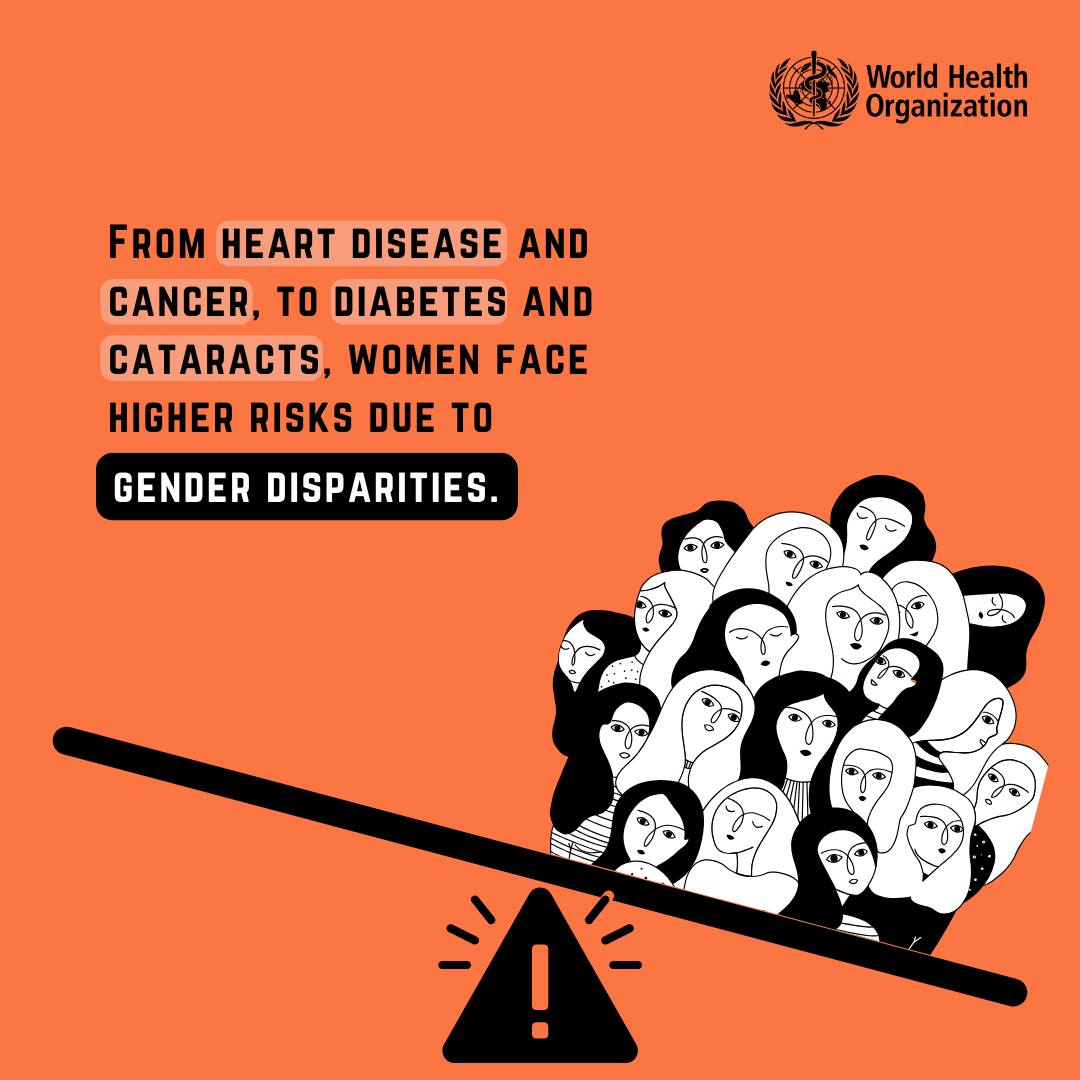

In every corner of the world, the fight for gender equality continues to shape conversations about justice, development, and human rights. Yet, beyond the realms of politics, education, and economics, one of the most pressing but often overlooked battlegrounds for true equality lies in health. The statement “gender equality starts with health” resonates now more than ever, as millions of women across the globe, particularly those in underserved communities, continue to face systemic challenges that not only threaten their well-being but also hinder the collective progress of societies. Health is not just a fundamental human right, it is the foundation upon which all other opportunities—education, employment, leadership, and personal empowerment—are built. Without equal access to quality healthcare, the dream of a fair and just world remains far from reality.
In many parts of the world, women still struggle to access even the most basic health services, from prenatal care and safe childbirth facilities to routine check-ups and life-saving treatments. For a young girl growing up in a rural community, the barriers can begin even before birth. Her mother might not have access to skilled healthcare workers during pregnancy, increasing the risk of complications that could endanger both lives. If she survives, that child might grow up in an environment where healthcare is scarce, and when she becomes a woman, the cycle of limited access and systemic neglect continues. The burden of inequality manifests in harrowing statistics—maternal mortality rates remain unacceptably high in regions where health facilities are underfunded and understaffed, and diseases that could easily be prevented or treated claim the lives of women simply because their healthcare needs are not prioritized.
Social biases and cultural norms further compound the problem. In many societies, women are often the last to receive medical attention within their households, their health sacrificed for the perceived greater good of the family. When resources are scarce, it is the men or boys who are prioritized for medical treatment, leaving women and girls to suffer in silence. Even when women muster the courage to seek care, they may encounter discrimination, lack of respect, or outright dismissal of their concerns by healthcare providers who are themselves shaped by societal biases. This invisibility of women’s health needs is not just a personal tragedy; it is a structural injustice that perpetuates cycles of poverty and inequality.
Beyond physical health, mental health remains another neglected area where women, especially those from marginalized backgrounds, are disproportionately affected. Gender-based violence, domestic abuse, and social discrimination leave many women battling trauma, depression, and anxiety with little to no support. Mental health services are already scarce in most countries, and for women navigating poverty and cultural stigma, seeking psychological care can be almost impossible. This invisible burden further deepens the inequality gap, stripping women of their voices, their strength, and their capacity to thrive.
Addressing these disparities requires a radical shift in how societies perceive and prioritize healthcare. A healthier, fairer world can only be achieved when healthcare systems are built on inclusivity, accessibility, and equity. Equal access to quality healthcare is not a luxury, it is a necessity that determines whether women can participate fully in their communities and contribute to the growth of their nations. Policymakers, governments, and global organizations must recognize that gender equality in healthcare is not merely a women’s issue—it is a societal imperative that benefits everyone. When women are healthy, families flourish, communities prosper, and economies thrive.
Evidence from around the world proves that investment in women’s health yields exponential returns. Countries that have expanded maternal healthcare, provided affordable contraception, and invested in reproductive health education have seen remarkable reductions in maternal mortality, higher school attendance for girls, and increased workforce participation for women. These ripple effects cannot be overstated—ensuring women’s health is directly linked to eradicating poverty, achieving sustainable development goals, and fostering stable, resilient societies. Every dollar spent on women’s health is a dollar invested in the prosperity of future generations.
However, progress remains uneven and fragile. Underserved communities, particularly in low-income nations, continue to face the worst of these challenges. Poor infrastructure, lack of medical professionals, and limited access to essential medicines keep women trapped in cycles of preventable suffering. The COVID-19 pandemic further exposed these inequalities, with women bearing the brunt of overburdened healthcare systems, loss of income, and increased responsibilities at home. Many were cut off from essential reproductive services during lockdowns, while others risked their lives as frontline workers with inadequate protection. The pandemic was a stark reminder that health crises deepen existing inequalities, and without deliberate interventions, women will always pay the heaviest price.
Yet, amid these daunting realities, hope remains alive. Around the globe, women’s health advocates, grassroots organizations, and forward-thinking governments are working tirelessly to close the gap. Initiatives providing mobile health clinics in remote villages, campaigns for free maternal care, and programs training female community health workers are gradually shifting the narrative. Technology, too, is playing a role, with telemedicine offering new opportunities for women in underserved areas to access medical advice and support without the barriers of distance or stigma. These efforts prove that change is possible when there is political will, community engagement, and global solidarity.
But more needs to be done, and the urgency cannot be overstated. True equality demands dismantling the structural barriers that keep women from accessing healthcare. It means ensuring that every girl, regardless of where she is born, has the same chance of survival as her brother. It means training healthcare providers to treat women with dignity and respect, free of bias or prejudice. It means acknowledging that women’s health encompasses not just reproductive issues but also chronic illnesses, mental health, and age-related conditions that have long been ignored. And it means listening to women themselves—centering their voices in the design and delivery of healthcare services that meet their unique needs.
The path to a healthier and fairer world begins with the recognition that gender equality and health are inseparable. We cannot build a just society while half of the population remains systematically disadvantaged in something as fundamental as healthcare. The promise of equality will remain hollow until women everywhere can access the care they need without fear, shame, or limitation. A world where women’s health is valued equally is not just fair—it is stronger, more resilient, and more compassionate.
As the global community continues to champion the cause of equality, it must remember that the journey starts not in boardrooms or political chambers, but in hospitals, clinics, and homes where women fight daily battles for their right to live healthy lives. Gender equality begins with health, and when that truth is embraced, the vision of a fairer, more prosperous world will no longer be a distant dream, but a reality within reach.


